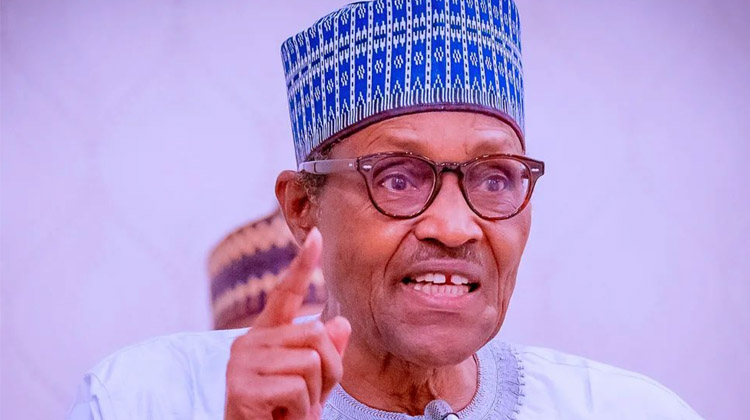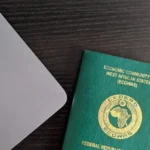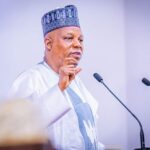President Muhammadu Buhari’s broadcast to the nation last Thursday will go down as one of the most underwhelming presidential speeches in Nigerian democracy on record so far. Compared to his first inaugural address on May 29, 2015, which lifted the whole nation with hope and high expectations of a new dawn for Nigeria, Thursday’s speech was nothing short of an attack on Nigeria’s democracy.
The President’s speech was grossly insensitive to Nigerians, contemptuous of the Supreme Court, and by implication, disrespectful of the principles of separation of powers upon which our constitutional order has stood since at least May 1999. The President said he was addressing Nigerians as their “democratically elected President”. Buhari is indeed Nigeria’s current president, having been elected first in 2015, and again in 2019, for a term of four years each under our 1999 Constitution. In his Thursday’s address, however, the president’s demeanor, his choice of words, and his selective engagement with the issues about which he spoke were everything but democratic.
First, the President presented his speech as a democratic leader’s reaction to the suffering of his people, and his words said as much. But at Daily Trust, we wonder what democratic leader would wait and watch for weeks as Nigerians report their incomes and capital being wiped out or died on queues at banks and hospitals as a direct fallout of their own government’s policy before addressing the nation. Moreover, a democratically elected president is constitutionally enjoined to protect the dignity and humanity of his citizens at all times and circumstances. But even without considering the merits of the naira redesign policy, which President Buhari was at pains to highlight in his speech, its implementation so far has exposed millions of Nigerians to the crudest indignity and cruelest inhumanity, the sort citizens should not normally suffer in their own country in peace time.
A policy that subjects Nigerians to long hours, and in some cases, even days on bank queues, a policy that has directly resulted in the burning of banks, a policy that has led to mass protests across several cities, and the reported tear-gassing and alleged shooting to death of Nigerians by policemen, a policy that now requires hundreds of policemen at various branches of the CBN across the country to enforce is anything but democratic, and only reminiscent of an authoritarian era most Nigerians thought they had put behind them since a quarter century ago.
Buhari also told a beleaguered nation, in his own words, that “In the last quarter of 2022, I authorised the Central Bank of Nigeria (CBN) to redesign the N200, N500, and N1000 Nigerian banknotes”. Few statements would be more undemocratic than this. Yet, the whole point of the Central Bank of Nigeria (CBN) Act 2007, the extant legislation upon which the general and day-to-day operations of the CBN must be based to be considered legitimate, is to avoid a situation where a president—any president—would issue a direct authorization to the CBN to do anything, however trivial or consequential.
The CBN exists and operates under the assumption, backed by law, that monetary policy making and implementation must be independent of the government of the day. By issuing such an authorization to the CBN and thumping his chest to Nigerians over a policy that, in the present at least, has seen millions of Nigerians robed of their capital and livelihoods, President Buhari was only reminding Nigerians of his appropriation of the powers he lacks under our constitutional order, that is, of his attack on our extant laws.
Attack on one law could be excused for a President still in search of a legacy project so late into their administration, as Buhari’s entire speech on this policy ironically implied, but breaching several laws at once is most concerning. The President’s speech was also a direct attack on constitutionalism and the Electoral Act 2022 which he himself signed into law a year ago. By insisting that he has retired the old 500- and 1,000-naira notes, and giving concession, as it were, only to the continuing use of the old 200 naira notes until April 10, 2023, President Buhari spoke in direct contravention of the subsisting order by the Supreme Court, an organ of the federal government that is, if a reminder is necessary at all, co-equal with the Executive Branch.
In touting the merits of the naira redesign policy, President Buhari makes clear that he seeks to reduce the “the influence of money in politics”, particularly “vote-buying”. As we have warned on several occasions on these pages, Daily Trust stands against vote-buying and the monetization of our elections in every form. However, by stifling the economy of the needed cash to carry out even legitimate transactions, the President risks throwing away the baby with the bathwater, after all, Nigerian laws permit the use of money in elections, up to a point.
The Independent National Electoral Commission (INEC) has complained that it needs cash to effectively conduct certain aspects of the election. So too do all political parties and politicians vying for elective offices. Indeed, Section 88 of the Electoral Act 2022 makes clear that candidates are allowed to spend money in the pursuit of their legitimate aspirations, ranging from N5 billion for presidential candidates to N30 million for state legislative seats. By mopping up all the old notes in circulation, without making the new ones sufficiently available, the President and the CBN directly infringe on these provisions of the Electoral Law.
We call on President Buhari to uphold the Constitution and our laws as they apply to this policy. Democracy is inconvenient by design: the whole point is to avert the rule of one man, however benevolent they might be.

 Join Daily Trust WhatsApp Community For Quick Access To News and Happenings Around You.
Join Daily Trust WhatsApp Community For Quick Access To News and Happenings Around You.


